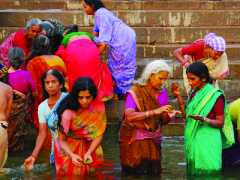Researchers find multiple hurdles still block the path of femal practitioners.
Women are consistently thwarted in their struggle to join the senior ranks of India’s legal profession, research released this week highlights, with the survey showing that of the nearly 400 senior advocates designated by the country’s Supreme Court since 1962, only five have been female, reports Global Legal Post.
The report, conducted by legal consultants Swagata Raha and Sonal Makhija, surveyed women lawyers in Bombay, Delhi and Bangalore. In an interview with the publication Bar & Bench, the two lawyers focused on several disturbing practices: female lawyers are sometimes denied bonuses and promotions because of maternity breaks, they are questioned about marriage and children during interviews, and almost half of those surveyed said measures to promote work-life balance were poorly implemented.
Fears confirmed
‘We wish we could say that we were surprised,’ said the lawyers. ‘Most of our fears and assumptions about the bias and barriers in the sector proved to be true.’
The two lawyers are now awaiting the response of the profession leaders to the survey and to a list of recommendations made in the report, stating: ‘It’s important that these recommendations are considered as most of them have come from the respondents.’
In an article for Indian web site First Post, the research authors say that ‘women senior advocates widely acknowledge that a woman lawyer’s professional ability and soundness of advice arouses scepticism and doubt. Not surprisingly, women lawyers have to fight hard for their rightful fees, which their male counterparts often easily command.’ They point out that Indian clients often choose female lawyers with the intention of paying lower fees.
Lack of facilities
Generally, say the authors, women lawyers – and specifically litigation specialists – face ingrained prejudice, ranging from a ‘lack of adequate sanitation facilities, overcrowded women’s work rooms in courts, and in many cases lesser fees than their male colleagues. Moreover, clients often prefer male lawyers with less experience than women with more experience or skill’.















